 Geng Xuan crowned at 9th China Super Model Contest
Geng Xuan crowned at 9th China Super Model Contest
 Top 10 billionaires in the liquor industry
Top 10 billionaires in the liquor industry
 Backstage at China Fashion Week
Backstage at China Fashion Week
 Ballerinas anywhere but onstage
Ballerinas anywhere but onstage
 Top 10 safest airlines in the world
Top 10 safest airlines in the world
 Top 10 most popular instant messaging apps in the world
Top 10 most popular instant messaging apps in the world
 Inspiring shadow images of Chinese army
Inspiring shadow images of Chinese army
 Models shine Xinjiang auto show
Models shine Xinjiang auto show
 From laid-off worker to int'l referee in bodybuilding
From laid-off worker to int'l referee in bodybuilding
 Selected photos of 'two sessions'
Selected photos of 'two sessions'
The World Trade Organization released a panel report on March 27 2014, saying that the US imposition of countervailing and anti-dumping measures against certain Chinese products is in violation of WTO rules. Chinese experts have hailed the ruling as a "significant victory".
WTO rules against US "double remedies".
Between 2006 and 2012 The US undertook 25 actions against Chinese products ranging from photovoltaic cells to tubular goods. Such actions could impact Chinese exports to a value of more than $7.2 billion.
Shen Danyang, spokesman of the Ministry of Commerce of the People’s Republic of China, said that China hailed the ruling that US "double remedies" are inconsistent with WTO regulations, and hoped that the United States would call a halt to these actions, so as to allow a level playing field for Chinese enterprises.
China - the "scapegoat" for US economic problems.
As trade volumes increase between China and the US, the latter has turned increasingly to trade protectionism. Trade barriers represent a significant obstacle to Chinese companies who are trying to 'go global'.
Chinese experts have identified a number of motives for the US trade protectionism. In the context of strains on its domestic industry and employment, the US has increasingly tended to view the trade deficit between China and the US as an "economic eyesore". It has responded by increasing its restrictions on Chinese high-tech imports. As long as there are problems within the domestic US economy, the US will seek to make China the scapegoat.
China should act to defend its rights.
The WTO victory does not represent a "complete success". As China becomes the largest trading nation, it will also become the No. 1 target of global trade friction. Its traditional approaches to dealing with trade friction are out of date.
If our enterprises and our governments can find ways to respond to the United States countervailing and anti-dumping measures, the US will pay high cost for its behavior, says Wang Li, head of the Institute of World Economy of the Chinese Academy of International Trade and Economic Cooperation.
The article is edited and translated from《美国患上贸易保护依赖症》, source: People's Daily Overseas Edition, author: Zhou Xiaoyuan.
 Wonderful moment of China's airborne forces
Wonderful moment of China's airborne forces Bai Baihe shoots for fashion magazine
Bai Baihe shoots for fashion magazine Red terraced fields in Dongchuan of Yunnan
Red terraced fields in Dongchuan of Yunnan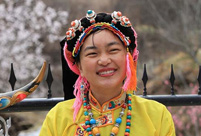 Jiaju Tibetan Village
Jiaju Tibetan Village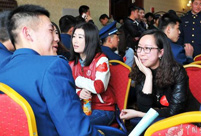 Spring dating
Spring dating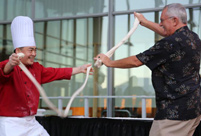 Confucius institute at UC Davis
Confucius institute at UC Davis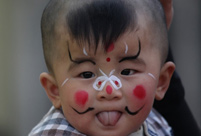 Little painted faces at temple fair
Little painted faces at temple fair Top 10 safest airlines in the world
Top 10 safest airlines in the world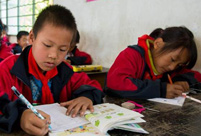 Foreign students at China-Myanmar border
Foreign students at China-Myanmar border Ballerinas anywhere but onstage
Ballerinas anywhere but onstage Most unusual taxis around the world
Most unusual taxis around the world Micro-expression at 'two sessions'
Micro-expression at 'two sessions' Bridge Worship Festival in Taijiang, SW China
Bridge Worship Festival in Taijiang, SW China Hollywood documentary brings Diaoyu Islands truth to new audience
Hollywood documentary brings Diaoyu Islands truth to new audience Miss HK and actresses shine at flower show
Miss HK and actresses shine at flower showDay|Week|Month